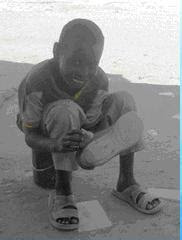Monday, 21 September 2009
Forgotten Diaries small grant final Report for peace brigade SMALL GRANT project.
The whole activities were carried out effectively with the full commitment of project team, partner organizations and newly recruited activist.
Three discussion forums in three schools and two public debates in the city administration HALL were held here in bahir dar city where we have recruited and trained children at schools to mobilize their peers and the community for peace building and non violence conflict resolution initiatives.
Those public debates were attended by students, parents and more of local residents consisted from all walks of life and the main objective of organizing these events was to introduce Forgotten Diaries project, promote teenage peace brigade community action project and to mobilize the community for the implantation of the newly introduced techniques and tools of the Forgotten diary small grant project.
Both discussion forums and public debate were co-chaired by club leaders and school administrators
Most participants of the public debate supported and appreciated the introduction of non violence conflict resolution and peace building techniques in the community at large and in schools in specific but some of attendants argued that it was not the right time to introduce these techniques to the schools or to the community because our priority issue isn’t conflict but are gender based violence, poverty and school drop. The debates continued for about 90 minutes and the outcomes of the panel discussion were similar to that of the events organized two weeks ago in the rest three schools while the outcomes of the public debates were the following
Establishment of student-teachers- parents committee (STPC) to undertake activities in the future
Prepared plan of action to arrange periodical meetings and gatherings in schools and our of schools.
Even after the completion of the project club leaders will mobilize their peers in their respective Schools and will organizes awareness raising campaigns and outreach programs.
The final report will be sent to you soon with relevant receipts of expenses made to undertake activities of the project, photos captured at events and stories of participants.
Prepared by Amare Abebaw
Project coordinator bahir-dar, Ethiopia
Monday, 14 September 2009
Progress report three on “Teenage peace brigade” project
By Amare Abebew project coordinator
Having received the second installment of the project from project coordinators other components of the project were arranged according to the pre determined schedule.
After the successful completion of our training on peace building, conflict resolution and leadership t selected students, the trainees were expected to mobilize their peer and the school community to introduce on peace building and conflict resolution techniques in their community, among the effective strategies we wanted to use to introduce these techniques were undertaking discussion forums and public debates in schools to initiate discussion in the school community about the issues.
Among the selected six schools Three schools were the first to start this outreach program in the project area, recruiting students in schools was started earlier this month and some of newly recruited students attended our discussion forums in their schools.
Speech of the principals of the schools were the opening of each discussion forums, the maximum capacity each discussion forum can host is predetermined to be 30 and invitation to participants of these forums was made according to that and to make sure more diverse community members attended the forums we invited some families of students, government officials, teachers and students of the schools, the three discussion forums were held in three schools at the same time and our club leaders showed their commitment by effectively coordinating these discussion forums.
Topics of the discussion forums were
![]() Cause of conflicts in our schools
Cause of conflicts in our schools
![]() Consequences of conflicts in our schools
Consequences of conflicts in our schools
![]() How can we work together to resolve these conflicts peacefully
How can we work together to resolve these conflicts peacefully
![]() How to prevent conflicts from being occurred
How to prevent conflicts from being occurred
And the duration of the discussion forums was around 2 hours
The conclusion and consensuses reached at the end of the forums were valuable to work more consistently in schools and by this week the rest three schools will organize their discussion forums in their schools.
Friday, 11 September 2009
Somaliland: Street children "becoming the new gangsters"

